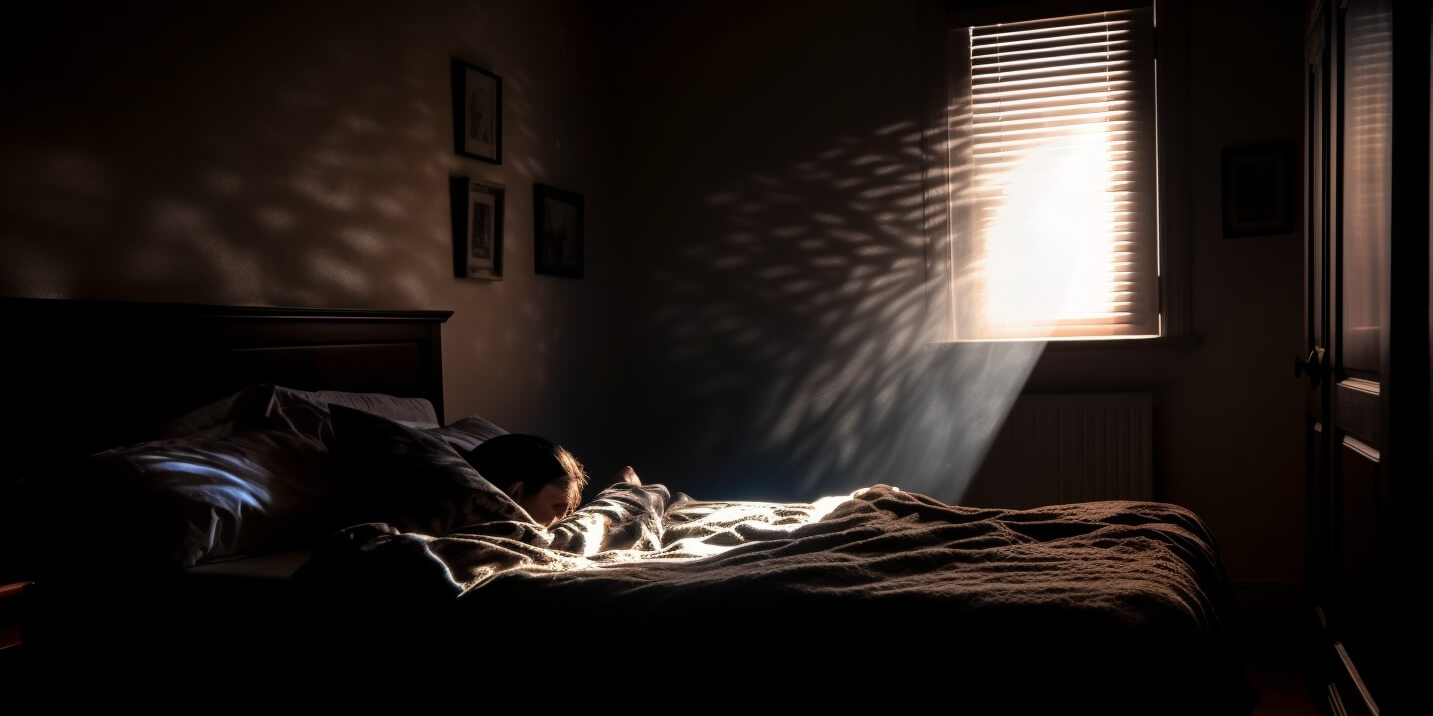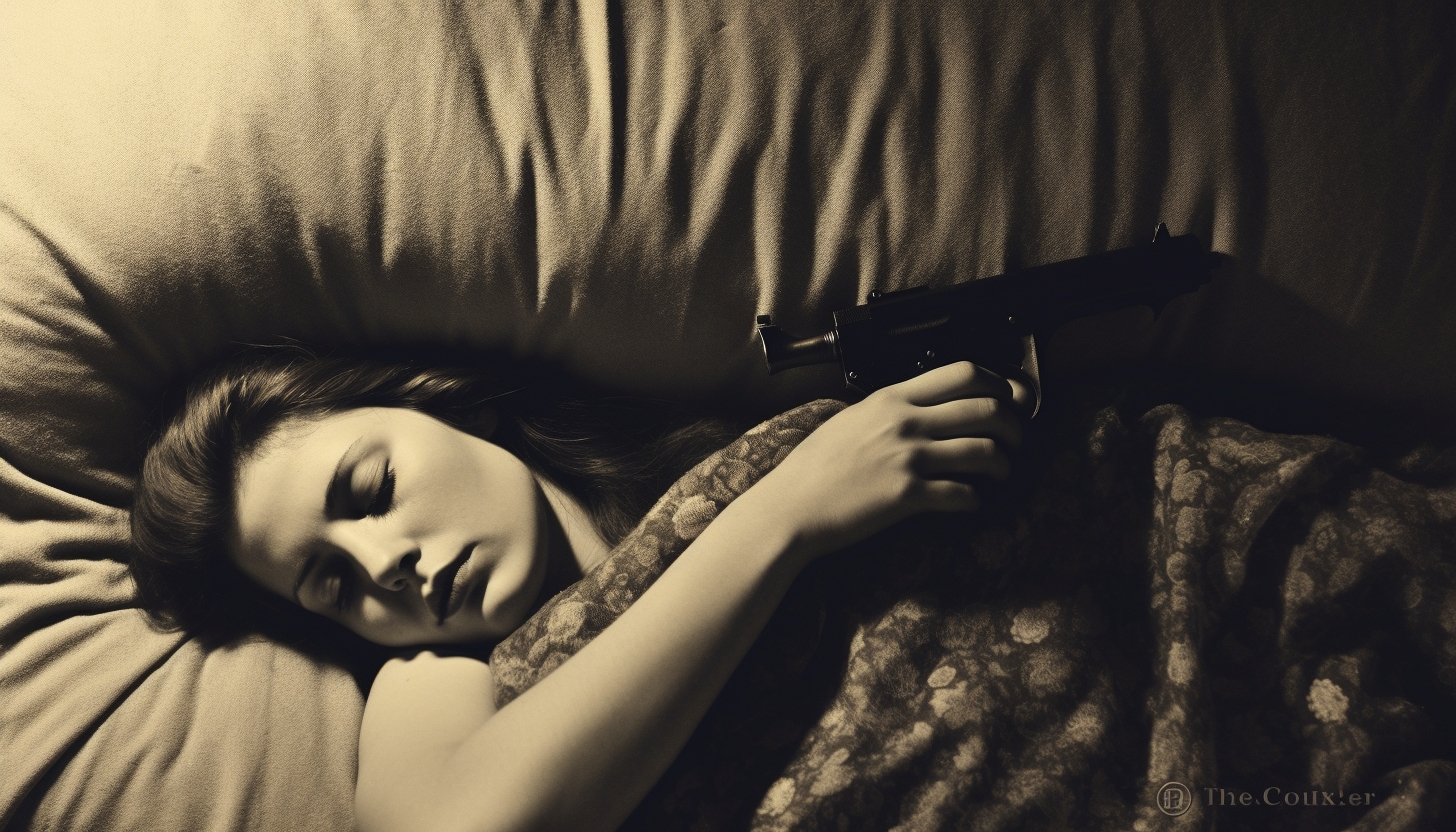
Sleep paralysis is a condition that occurs when the body is unable to move or speak while falling asleep or upon waking up. Some people describe it as feeling like they are trapped inside their own body, unable to move, and often experiencing vivid hallucinations.
While the exact cause of sleep paralysis is not known, research suggests that it may be the result of the body’s natural sleep cycle being interrupted. Normally, during sleep, the body goes through several stages, including REM (rapid eye movement) sleep, which is when most dreaming occurs. During REM sleep, the body’s muscles become temporarily paralyzed to prevent us from acting out our dreams.
However, in sleep paralysis, the body becomes temporarily paralyzed while the person is still awake. This can occur when there is a disturbance in the sleep cycle, such as waking up abruptly during REM sleep.
The science behind sleep paralysis and its effects on the body
During sleep, the brain signals the muscles to relax, which causes temporary paralysis. This is a normal part of the sleep cycle and typically occurs during the REM stage of sleep, which is the stage when we tend to have the most vivid and memorable dreams.
However, in people with sleep paralysis, this paralysis can persist even after they have woken up, leaving them unable to move or speak. This can be a scary experience, but it is generally not harmful and usually resolves on its own within a few minutes.
Despite its relatively harmless nature, sleep paralysis can have a number of unpleasant side effects. For example, it can cause anxiety, fear, and panic, and can leave the person feeling exhausted and out of control.
Common symptoms and experiences during a sleep paralysis episode
The most common symptom of sleep paralysis is the inability to move or speak, even though the person is fully awake and aware of their surroundings. This can be accompanied by vivid hallucinations, such as the feeling of being touched or the sensation of someone or something pressing down on the chest.
Other common symptoms include intense fear or dread, feelings of being trapped or suffocated, and an overwhelming sense of anxiety. Some people also report auditory or visual hallucinations, such as seeing or hearing things that aren’t really there.
Are demonic entities really visiting us during sleep paralysis?
The experience of sleep paralysis can be so terrifying that many people have associated it with supernatural and paranormal phenomena, such as ghostly apparitions or demonic entities. In fact, some cultures have their own explanations for sleep paralysis that involve evil spirits or other supernatural forces.
However, from a scientific perspective, there is no evidence to suggest that sleep paralysis is caused by supernatural or paranormal phenomena. Rather, it is considered to be a purely biological phenomenon that can be explained by the workings of the brain and nervous system.
While it is true that some people may experience hallucinations during sleep paralysis, these hallucinations are usually the result of the brain’s attempt to make sense of the paralysis and other sensory information. So, no, demonic entities are not really visiting us during sleep paralysis – it is just the result of a biological glitch in the sleep cycle.
Techniques for preventing and coping with sleep paralysis
While sleep paralysis can be a scary experience, there are a number of techniques that can be used to help prevent it or cope with it when it occurs. Some of these techniques include:
- Practice good sleep hygiene – this includes going to bed and waking up at the same time every day, avoiding caffeine and alcohol before bed, and creating a sleep-conducive environment in your bedroom.
- Manage stress – stress can disrupt the sleep cycle and increase the likelihood of sleep paralysis. Techniques such as meditation, yoga, and deep breathing can help to reduce stress and promote relaxation.
- Sleep on your side – some people find that sleeping on their back increases the likelihood of sleep paralysis. Sleeping on your side can help to prevent it.
- Seek medical treatment – if your sleep paralysis is causing significant distress or disrupting your daily life, it may be helpful to seek medical treatment. Your doctor or a sleep specialist may be able to recommend medications or other treatments to help manage your symptoms.
By using these techniques, it is possible to manage and even prevent sleep paralysis, making it less of a terrifying experience and more of a mild annoyance.
Spiritual perspectives on sleep paralysis and its significance
While sleep paralysis may be explained by science, many people also believe that it has spiritual significance. Some cultures view it as a sign of spiritual awakening or as a visitation by angels or other benevolent beings. Others believe that it is a sign of negative energy or the presence of evil spirits.
From a spiritual perspective, sleep paralysis can be seen as an opportunity for personal growth and development. For example, it may be seen as a chance to confront and overcome fear or to connect with a higher power. It may also be viewed as a sign of increased intuition or of being on the path towards spiritual enlightenment.
However, it is important to note that these spiritual perspectives are largely based on personal beliefs and experiences, rather than on scientific evidence. While many people may find comfort and meaning in these beliefs, they should not be seen as a substitute for medical or psychological treatment.
Understanding the link between sleep paralysis and lucid dreaming
Lucid dreaming is a type of dream in which the dreamer is aware that they are dreaming and can often control the content of the dream. Some people who experience sleep paralysis also report experiencing lucid dreams.
There is still much that is not understood about the link between sleep paralysis and lucid dreaming, but some researchers believe that the two phenomena may be related. For example, both sleep paralysis and lucid dreaming occur during the REM stage of sleep, and both involve an altered state of consciousness.
Some people may also use techniques for inducing lucid dreams to help prevent or manage sleep paralysis. For example, they may focus on a specific thought or image before falling asleep in order to increase the likelihood of experiencing a lucid dream, which may in turn reduce the likelihood of experiencing sleep paralysis.
However, it is important to note that the link between sleep paralysis and lucid dreaming is still largely speculative, and more research is needed to fully understand the relationship between the two phenomena. In the meantime, those who experience sleep paralysis can focus on managing their symptoms through the techniques outlined above, as well as seeking medical or psychological treatment if needed.






What do you think?
Lets login and you can leave your thoughts